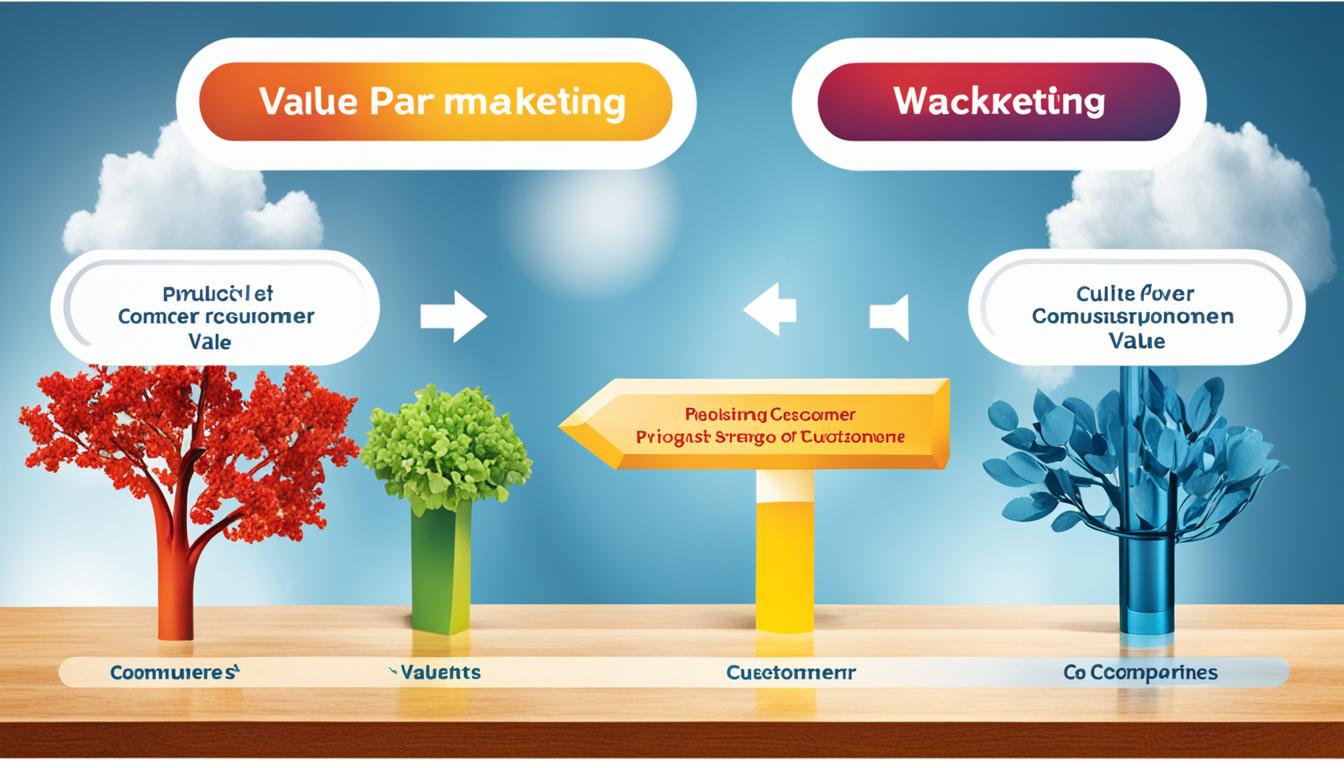Woke marketing, also known as conscious marketing or ethical advertising, is a strategy where companies align themselves with socially and politically charged causes to connect with consumers who share similar values. This approach goes beyond purely commercial interests and aims to foster a sense of community and social responsibility. In this article, we will explore the concept of woke marketing, its impact, and provide real-world examples of brands embracing this progressive strategy.
Key Takeaways:
- Woke marketing is a strategy where companies align themselves with socially and politically charged causes to connect with like-minded consumers.
- It goes beyond purely commercial interests and aims to foster a sense of community and social responsibility.
- Real-world examples of woke marketing include Nike’s “Just Do It” campaign featuring Colin Kaepernick and Under Armour’s “Pride collection.”
- Implementing woke marketing can enhance a company’s brand image, build trust, and attract socially conscious consumers.
- Authenticity and genuine commitment are essential in woke marketing to establish long-term trust and loyalty from the audience.
What is Woke Marketing?
Woke marketing is a progressive strategy where companies actively engage with social justice issues and advocate for change. It goes beyond traditional advertising by taking a stand on political and societal topics and integrating these values into brand messaging and advertising campaigns. The objective is to appeal to socially conscious consumers who align with these causes and create a sense of authenticity and trust. By embracing woke marketing, brands position themselves as advocates for positive social change and attract a loyal customer base.
In woke marketing, companies leverage their platforms to address social justice concerns and make a meaningful impact. This strategy involves incorporating a social justice branding campaign as part of the overall marketing strategy, with a focus on issues such as racial equality, gender inclusivity, LGBTQ+ rights, environmental sustainability, and more.
By aligning themselves with social justice causes, brands demonstrate their commitment to creating a better world and connect with consumers who share similar values. This approach not only helps build brand loyalty but also fosters a sense of community and collective responsibility.
Implementing woke marketing requires a comprehensive understanding of the target audience and the specific social justice issues they care about. It is essential to conduct extensive market research to identify the key concerns and align the brand’s messaging and values accordingly. The success of woke marketing lies in its ability to resonate with consumers, evoke emotional responses, and inspire action.
Benefits of Woke Marketing:
- Creates a positive brand image by positioning the brand as socially responsible
- Builds trust and loyalty among socially conscious consumers
- Differentiates the brand from competitors
- Strengthens customer engagement and fosters a sense of community
Challenges of Woke Marketing:
- Risks associated with taking a stand on controversial issues
- Potential backlash from consumers with opposing views
- The need for consistent action and follow-through to maintain authenticity
| Brand | Woke Marketing Campaign | Impact |
|---|---|---|
| Nike | Nike’s “Just Do It” campaign featuring Colin Kaepernick | Inspired public discourse on racial inequality |
| Ben & Jerry’s | Ben & Jerry’s support for LGBTQ+ rights | Built brand loyalty among socially conscious consumers |
| Patagonia | Patagonia’s commitment to environmental sustainability | Positioned the brand as a leader in sustainable fashion |
The Impact of Woke Marketing
Woke marketing can have a significant impact on brand reputation and customer perception. By embracing inclusive advertising, which promotes diversity and representation, companies can resonate with a diverse audience and cultivate a positive brand image. In today’s socially conscious world, consumers value responsible messaging and expect companies to address social issues. By integrating responsible messaging into their marketing campaigns, brands can build trust and loyalty among consumers who prioritize supporting companies that align with their values.
Furthermore, woke marketing allows brands to differentiate themselves from competitors and attract socially conscious customers. In a saturated market, where products and services may seem similar, a commitment to inclusive advertising and responsible messaging can set a brand apart. By championing social causes and embracing diversity, companies can forge deeper connections with consumers who share their values and beliefs.
Diversity marketing, in particular, plays a crucial role in woke marketing. By featuring diverse individuals in advertising campaigns, brands can demonstrate their commitment to inclusivity, which resonates with consumers who crave representation and cultural sensitivity. Such advertisements reflect a brand’s genuine effort to embrace diversity, create a positive brand image, and contribute to a more inclusive society.
| Brand | Advertising Campaign |
|---|---|
| Nike | “Equality” featuring athletes advocating for racial equality |
| Coca-Cola | “Open Happiness” campaigns showcasing diverse communities |
| Procter & Gamble | “The Talk” addressing racial bias and parent-child conversations |
These real-world examples of diversity marketing highlight how brands leverage responsible messaging and inclusive advertising to connect with their target audience.
Real-World Examples of Woke Marketing
Numerous brands have embraced woke marketing and successfully integrated it into their advertising campaigns. These real-world examples highlight the potential impact and challenges of implementing woke marketing strategies.
Nike’s “Just Do It” Campaign
Nike’s “Just Do It” campaign featuring Colin Kaepernick, an athlete known for his activism against racial inequality, exemplifies the power of purpose-driven marketing. Despite facing both praise and backlash, the campaign ultimately strengthened Nike’s brand image and resulted in increased sales.
Under Armour’s “Pride Collection”
Under Armour’s “Pride collection” showcases their support for the LGBTQ+ community. By releasing a line of products that highlights inclusivity and diversity, Under Armour aligns itself with a socially conscious cause, attracting customers who value and support brands that stand for these values.
Heineken’s Vaccine Campaign
Heineken’s controversial vaccination campaign is another example of woke marketing. While the campaign faced criticism for using a serious issue for brand promotion, it sparked conversations about public health and the importance of vaccinations, ultimately creating awareness around the topic.
These real-world examples demonstrate how woke marketing can engage consumers by addressing social and political issues, supporting sustainable marketing causes, and showcasing a purpose-driven approach to advertising.
The Business Case for Woke Marketing
Woke marketing is no longer just an optional strategy but has become essential for businesses in today’s societal climate. Consumers are more informed and expect brands to be socially responsible. Implementing socially conscious marketing can enhance a company’s brand image, build trust, and forge stronger connections with customers. By demonstrating a commitment to societal issues, businesses can foster loyalty and customer retention. Woke marketing also allows brands to differentiate themselves from competitors and attract socially aware consumers who prioritize supporting responsible companies.

Companies that engage in socially responsible marketing initiatives not only contribute to the betterment of society but also create a positive perception among consumers. Consumers are increasingly drawn to brands that align with their values and actively work towards addressing societal challenges. By promoting socially responsible practices, brands can enhance their reputation and establish themselves as leaders in ethical business practices.
Moreover, incorporating woke marketing into business strategies can lead to increased customer loyalty. When consumers witness a brand taking a stand on important issues and actively working towards positive change, they tend to develop a deeper emotional connection and trust. This emotional bond drives customer loyalty as consumers are more likely to choose brands that share their values and actively contribute to society.
Additionally, woke marketing allows companies to better understand their target audience’s preferences and build stronger relationships. This level of understanding enables brands to create tailored campaigns and messages that resonate with consumers on a deeper level. By addressing the values and concerns of their target market, companies can establish themselves as trusted allies and gain a competitive edge.
| Benefits of Woke Marketing | Examples |
|---|---|
| Enhanced brand image | Nike’s collaboration with Colin Kaepernick in their “Just Do It” campaign |
| Increased customer loyalty | Patagonia’s commitment to environmental sustainability |
| Differentiation from competitors | Ben & Jerry’s support for social justice causes |
Overall, woke marketing is not just a moral imperative, but it also presents a strategic advantage for businesses. By demonstrating a commitment to social responsibility, companies can enhance their brand image, foster customer loyalty, and differentiate themselves from their competitors. In an era where consumers are more socially conscious than ever, woke marketing is a powerful tool in building a successful and sustainable business.
The Importance of Research in Woke Marketing
Conducting thorough research is crucial for the successful implementation of woke marketing strategies. Market research allows companies to gain valuable insights into their target audience’s values, preferences, and attitudes towards social issues. By understanding consumer behavior and sentiments, brands can develop authentic campaigns that resonate with their audience and create a meaningful impact.
Moreover, research enables companies to stay updated on societal trends and current issues, ensuring that their woke marketing campaigns are timely and relevant. By aligning their message with ongoing conversations and movements, brands can demonstrate their commitment to social causes and connect with consumers who are passionate about these issues.
One effective research method involves analyzing competitors’ strategies. By studying how other brands have approached woke marketing, companies can identify unique opportunities for differentiation and learn from industry best practices. This analysis helps refine marketing strategies and ensures that campaigns are distinct and memorable.
Testing campaign impact through small-scale rollouts is another essential research approach. It allows companies to gather valuable feedback from a controlled audience and make data-driven adjustments before launching a full-scale woke marketing campaign. This iterative process helps optimize messaging, visuals, and overall campaign effectiveness.
The Role of Market Research in Woke Marketing
Market research plays a pivotal role in helping brands understand their target audience’s values, preferences, and attitudes towards social issues. It provides insightful data that guides the development of authentic woke marketing campaigns, allowing brands to connect with their audience on a deeper level. By staying updated on societal trends and analyzing competitors’ strategies, companies can ensure their campaigns are timely, relevant, and effective. Through small-scale rollouts and iterative testing, brands can refine their messaging and optimize campaign impact.
| Benefits of Market Research in Woke Marketing | Examples |
|---|---|
| Understanding target audience preferences | Surveying consumers on their social justice priorities and values |
| Identifying societal trends | Analyzing social media conversations and monitoring news outlets |
| Gaining insights into competitor strategies | Studying successful woke marketing campaigns of similar brands |
| Testing campaign impact | Conducting small-scale rollouts and measuring audience response |
Communicating Wokeness with Your Audience
When implementing woke marketing strategies, effective communication plays a pivotal role in establishing authenticity and engaging with your audience. The messaging should strike a balance between being informative and emotive, resonating with socially conscious consumers. Reflecting the seriousness of the social causes being addressed, the tone should convey respect and sensitivity.
Leveraging the power of social media platforms allows for direct and wide-scale communication, reaching a diverse audience. However, it’s crucial to tailor the messaging to each platform’s dynamics, considering the preferences and behaviors of the target audience. By doing so, brands can effectively convey their commitment to change and drive meaningful conversations.
Transparency and clarity in messaging are essential elements that foster trust among consumers. Clearly stating the cause being supported and outlining the company’s plans to create real change helps build credibility and reinforce brand transparency. Demonstrating authenticity and commitment can be further reinforced by donating to associated causes and organizations, solidifying the brand’s dedication to its chosen cause.

Example Image Caption:
A visually appealing and relevant image showcasing brand transparency in woke marketing.
| Platform | Key Messaging Strategies |
|---|---|
| Create engaging posts that spark conversation and encourage users to share their thoughts and experiences related to the cause. | |
| Utilize visually compelling posts and stories to tell stories about the cause and highlight the impact of the company’s efforts. | |
| Use concise and impactful tweets with relevant hashtags to amplify the message and foster community engagement. |
A table showcasing different social media platforms and their corresponding key messaging strategies in woke marketing campaigns.
Authenticity in Woke Marketing
Authenticity plays a central role in woke marketing. It is not enough for a company to simply voice support for a social cause; they must demonstrate a genuine commitment through their actions, policies, and company culture. This commitment should be evident in all aspects of the business, showing integrity and transparency.
An authentic approach to woke marketing enhances brand reputation, distinguishes a company from its competitors, and appeals to socially conscious consumers. By aligning their values and practices with social causes, companies can establish long-term trust and loyalty from their audience.
To create an authentic woke marketing strategy, companies need to foster a company culture that reflects their genuine commitment to social change. This involves integrating the values and principles of the chosen causes into the organization’s ethos and day-to-day operations.
When consumers see that a company truly lives its values, it builds trust and strengthens brand reputation. They are more likely to support a company that aligns with their own beliefs and values. Genuine commitment to social causes is a powerful motivator for socially conscious consumers to choose one brand over another.
Companies can showcase their authenticity through initiatives such as employee volunteer programs, sustainable practices, and partnerships with relevant nonprofits. When these initiatives are transparent and well-executed, they contribute to a company’s genuine commitment to social change.
Creating an Authentic Company Culture
Building an authentic company culture that supports woke marketing requires a multi-faceted approach. It starts with the leadership team, setting the tone for the entire organization. Leaders must genuinely believe in the causes they support and demonstrate their commitment through their actions and decision-making.
Transparency is also key in creating an authentic company culture. Companies should clearly communicate their values, initiatives, and progress toward social change to their employees and the public. This transparency builds trust and reinforces the company’s commitment to social causes.
Incorporating diversity and inclusivity into the company’s workforce and decision-making processes is another crucial aspect of an authentic company culture. Companies should work towards creating a diverse and inclusive environment that reflects the values and principles they stand for.
The Benefits of Authentic Woke Marketing
An authentic approach to woke marketing brings several benefits to companies. First and foremost, it enhances brand reputation. Consumers appreciate and respect companies that genuinely support social causes, leading to increased brand loyalty and positive word-of-mouth.
Authenticity also allows companies to differentiate themselves from their competitors. In today’s socially conscious market, consumers are actively seeking brands that align with their values. By making their commitment to social change known, companies can attract socially conscious customers who prioritize supporting responsible businesses.
Furthermore, authenticity in woke marketing helps build long-term trust and loyalty. When consumers see that a company is not just paying lip service to social causes but actively taking steps to effect change, they are more likely to remain loyal and continue supporting that company over time.
By embracing authenticity in woke marketing, companies can establish themselves as leaders in socially responsible branding, enhance their brand reputation, and forge meaningful connections with their audience. In doing so, they contribute to positive social change while driving business success.
Conclusion
Woke marketing has revolutionized the way brands connect with socially conscious consumers. By aligning themselves with social causes and advocating for change, companies have the power to shape brand reputation and foster long-term customer loyalty. The impact of woke marketing extends beyond short-term sales, as it resonates with consumers who prioritize socially conscious branding.
While there may be pitfalls and challenges associated with this progressive approach, the benefits of authentic and socially responsible advertising far outweigh the risks. Consumers today are more informed and expect brands to demonstrate a genuine commitment to societal issues. By embracing woke marketing, businesses have the opportunity to differentiate themselves from competitors and attract socially conscious customers who value supporting responsible companies.
Looking ahead, it is evident that woke marketing will continue to play a significant role in the future of advertising and branding. As consumers become more values-driven, the demand for socially conscious brands will only increase. Woke marketing has the power to shape consumer behavior and societal values, influencing the future of marketing. Brands that understand the importance of connecting with socially conscious consumers and embrace the principles of woke marketing have the potential to thrive in this evolving landscape.
FAQ
What is woke marketing?
Woke marketing, also known as conscious marketing or ethical advertising, is a strategy where companies align themselves with socially and politically charged causes to connect with consumers who share similar values. This approach goes beyond purely commercial interests and aims to foster a sense of community and social responsibility.
How does woke marketing impact brand reputation?
Woke marketing can have a significant impact on brand reputation and customer perception. Inclusive advertising, which promotes diversity and representation, resonates with a diverse audience and creates a positive brand image. By employing responsible messaging and addressing social issues, companies can build trust and loyalty among consumers who value these principles.
Can you provide examples of woke marketing?
Certainly! Nike’s “Just Do It” campaign featuring Colin Kaepernick, Under Armour’s “Pride collection” supporting the LGBTQ+ community, and Heineken’s controversial vaccination campaign are all real-world examples of woke marketing in action.
Why is woke marketing important for businesses?
Woke marketing is important for businesses because consumers are more informed and expect brands to be socially responsible. Implementing socially conscious marketing can enhance a company’s brand image, build trust, and forge stronger connections with customers.
How can research be beneficial in implementing woke marketing strategies?
Thorough research helps companies understand their target audience’s values, preferences, and attitudes towards social issues. By gaining insights into consumer behavior and sentiments, brands can develop authentic campaigns that resonate with their audience. Research also enables companies to stay updated on societal trends and current issues, ensuring their campaigns are timely and relevant.
How should woke marketing messages be communicated?
When communicating woke marketing messages, it is crucial to strike a balance between being informative and emotive. The tone of the messaging should reflect the seriousness of the social causes being addressed and demonstrate respect and sensitivity. Leveraging social media platforms allows for direct and wide-scale communication with the audience, but it is essential to tailor the message to each platform’s dynamics.
What role does authenticity play in woke marketing?
Authenticity plays a central role in woke marketing. It is not enough for a company to simply voice support for a social cause; they must demonstrate a genuine commitment through their actions, policies, and company culture. An authentic approach enhances brand reputation, distinguishes a company from its competitors, and appeals to socially conscious consumers.







